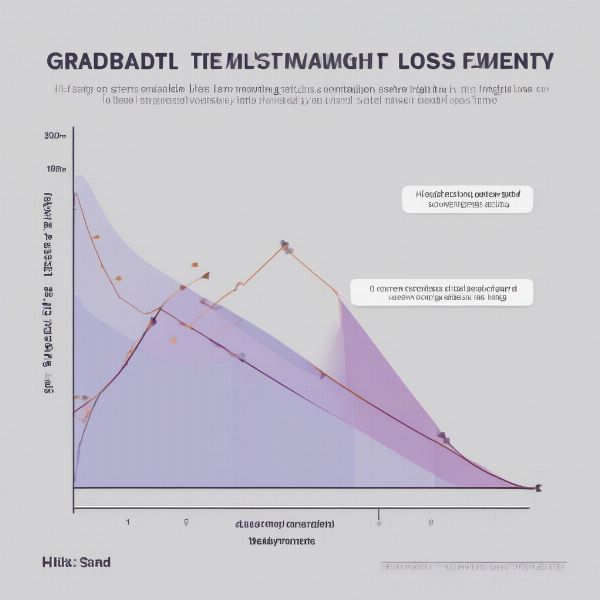Have you recently completed the ProLon Fasting Mimicking Diet and are thrilled with your weight loss results? Congratulations! Now, the real journey begins: maintaining that hard-earned success. The truth is, keeping weight off can often feel more challenging than losing it in the first place. But don’t worry, we’ve got you covered! This guide will provide you with evidence-based strategies to help you navigate the post-ProLon phase and keep those extra pounds at bay for good.
Understanding the Challenge: Why Weight Regain Happens
Before we delve into the solutions, let’s understand why weight regain is so common after a period of significant weight loss.
- Metabolic Adaptation: When you lose weight, your body undergoes metabolic changes to conserve energy. This means you may require fewer calories to function, making it easier to regain weight if you revert to old eating habits.
- Hormonal Shifts: Weight loss can affect hormones like leptin and ghrelin, which regulate hunger and fullness cues. This can lead to increased appetite and cravings, making it harder to resist overeating.
- Lifestyle Factors: Returning to old habits, lack of physical activity, stress, and poor sleep can all contribute to weight regain.
How To Keep Weight Off After Prolon: Strategies for Success
1. Adopt a Sustainable Eating Plan
Focus on Whole, Nutrient-Dense Foods:
- Fruits and Vegetables: Aim for at least 5 servings per day. They’re low in calories and high in fiber, which helps you feel fuller for longer.
- Lean Protein: Include sources like fish, chicken, beans, lentils, and tofu in your diet to support muscle mass and satiety.
- Whole Grains: Choose whole-grain bread, pasta, and rice over refined grains for added fiber and nutrients.
- Healthy Fats: Incorporate sources like avocados, nuts, seeds, and olive oil in moderation for heart health and satiety.
Limit Processed Foods, Sugary Drinks, and Unhealthy Fats:
- These foods are often high in calories, unhealthy fats, and added sugars, which can contribute to weight gain.
Mindful Eating:
- Pay attention to your hunger and fullness cues. Eat slowly, savor your food, and avoid distractions like TV or phones during meals.
2. Stay Active and Make it a Lifestyle
Aim for at least 150 minutes of moderate-intensity exercise or 75 minutes of vigorous-intensity exercise per week.
- Find activities you enjoy, such as brisk walking, swimming, dancing, or cycling.
- Incorporate strength training exercises at least twice a week to build muscle mass, which helps boost your metabolism.
Increase Your Non-Exercise Activity Thermogenesis (NEAT):
- NEAT refers to the calories you burn through everyday activities like walking, fidgeting, and standing.
- Look for opportunities to move more throughout your day, such as taking the stairs instead of the elevator or walking during your lunch break.
3. Prioritize Sleep and Manage Stress
Aim for 7-9 hours of quality sleep each night.
- Lack of sleep can disrupt hormones that regulate appetite, leading to increased cravings and weight gain.
Find Healthy Ways to Manage Stress:
- Stress can trigger overeating and weight gain.
- Explore stress-reducing techniques like yoga, meditation, deep breathing exercises, or spending time in nature.
4. Hydrate Consistently
Drink plenty of water throughout the day.
- Water helps you feel full, which can aid in weight management.
- It’s easy to mistake thirst for hunger, so staying hydrated can prevent unnecessary snacking.
5. Seek Support and Accountability
Join a support group or connect with a registered dietitian or certified health coach.
- Having a support system can provide encouragement, motivation, and accountability.
- A nutrition professional can help you create a personalized meal plan and offer guidance on maintaining a healthy lifestyle.
6. Track Your Progress and Celebrate Your Successes
Monitor your weight regularly and keep a food journal to track your calorie intake and eating habits.
- This can help you identify patterns and make adjustments as needed.
- Celebrate your successes along the way to stay motivated. Reward yourself with non-food treats like a massage, a new workout outfit, or a weekend getaway.
 Weight Maintenance Chart
Weight Maintenance Chart
Long-Term Weight Maintenance is a Journey, Not a Destination
Remember, maintaining weight loss is an ongoing process that requires commitment and effort. There will be ups and downs along the way, but don’t get discouraged. By following these evidence-based strategies and making gradual, sustainable changes to your lifestyle, you can enjoy the long-term benefits of your ProLon success and live a healthier, happier life.
Do you have any tips for maintaining weight loss that have worked well for you? Share them in the comments below!